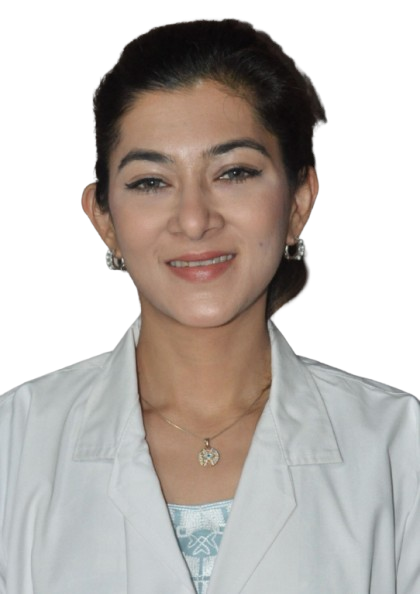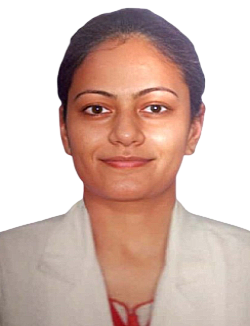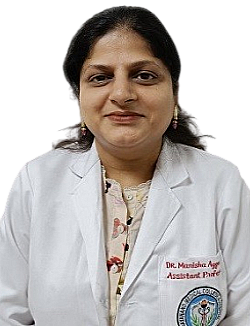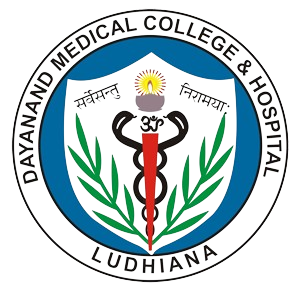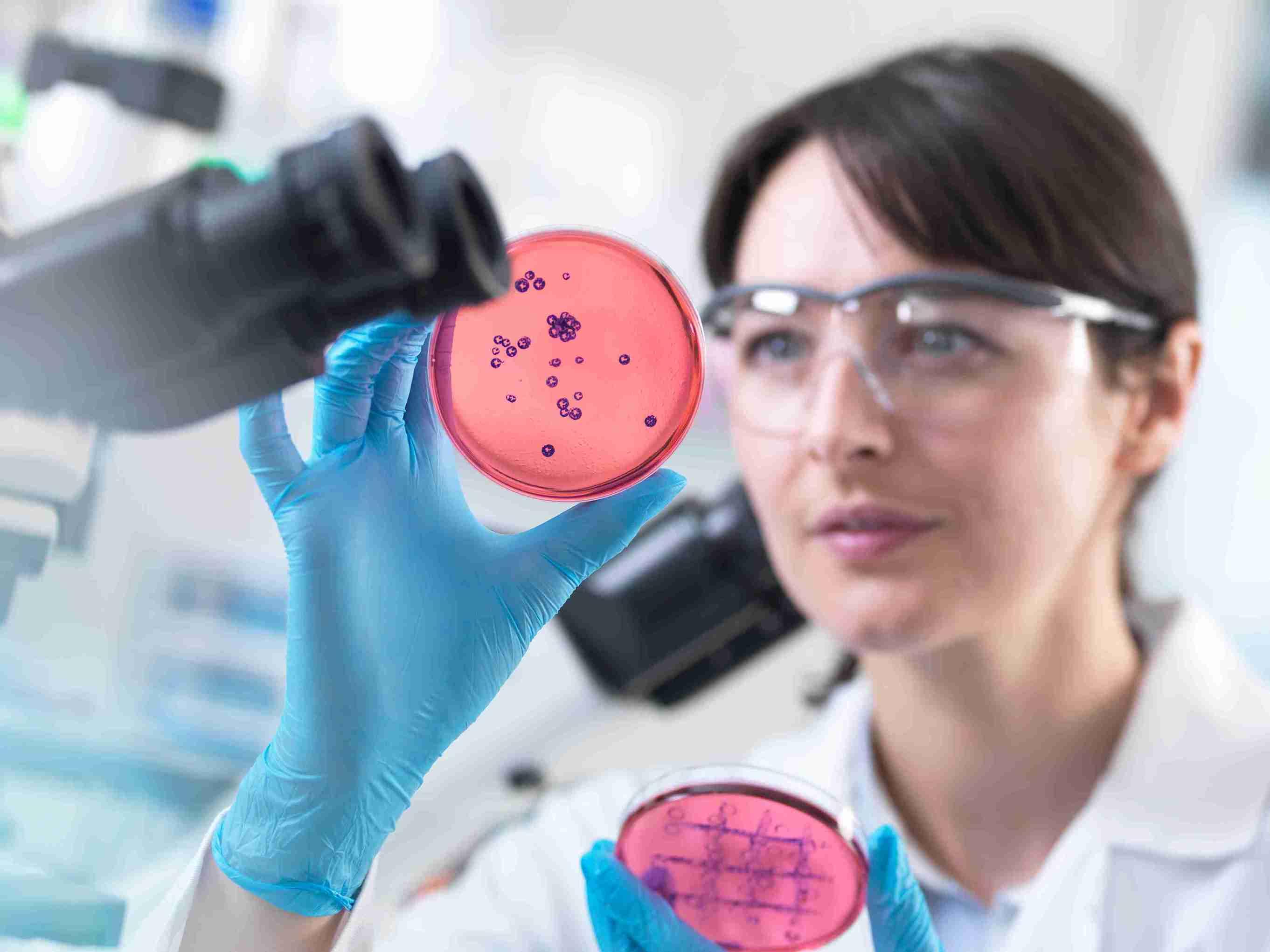
The Department of Microbiology at Dayanand Medical College and Hospital has made significant strides since its establishment in 1972. The primary objective has always been to provide high-quality education and advanced diagnostic facilities that align with international standards. During its early years, the department was led by eminent professionals such as Dr. (Mrs.) H. Prabhakar, Dr. W.C. Deb, and Dr. H.L. Chopra. In 1983, Dr. (Mrs.) Swaran Khurana took over, under whose leadership the department achieved postgraduate accreditation. From 1998 to 2020, the department flourished under the guidance of Dr. Shobha Ram, Dr. Urmil Mohan, Dr. Raj Kumar, and Dr. Deepinder Chhina. Since December 2020, Dr. Veenu Gupta has been leading the department to greater heights.
The department is being looked after by qualified faculty (Dr. Veenu Gupta (Professor & Head), Dr. Rama Gupta (Professor), Dr. Jyoti Chaudhary (Professor), Dr. Eshani Dewan (Associate Professor), Dr. Menal Gupta (Assistant Professor), and Dr. Manisha Aggarwal (Assistant Professor)) and trained laboratory technicians to meet the highest standards of quality and efficiency. Hands-on training sessions are conducted frequently to enhance testing accuracy, quality control, and quality assurance practices.
Academics
The Department of Microbiology at DMC&H provides comprehensive teaching and training in microbiology for MD, MBBS, BSc MLT, and Nursing students. The curriculum is designed as per the guidelines of the National Medical Commission (NMC), India, and Baba Farid University of Health Sciences. The faculty employs innovative teaching methodologies to make learning engaging and interactive. The department has been recognized as the Best Non-Clinical Teaching Department based on student feedback.
The faculty members are well-trained in various educational methodologies, including Basic Course Workshop in Medical Education Technologies, Curriculum Implementation Support Program (CISP) and Revised Basic Course Workshop (National Medical Commission).
To date, the department has trained over 80 postgraduate students, who are now well-placed in various medical colleges and private institutions. The faculty has contributed 250-300 research publications in reputed national and international journals. Faculty members regularly participate in conferences, workshops, and symposia to stay abreast with the latest advances in the field.
The faculty is actively involved in numerous research projects, including:
- PIDOPS: Pan-India distribution of Pneumococcal serotypes causing invasive pneumococcal disease and pneumonia in children (6 weeks–5 years).
- A hospital-based study estimating the burden of rotavirus infection in children under five years.
- A twin case-control study of Toxocara canis infection & epilepsy (community and hospital-based).
- A multicenter observational study of ICU patients under the Society of Indian Human and Animal Mycologists (SIHAM).
- Comparing Ziehl-Neelsen and Auramine-Phenol staining methods in the Revised National Tuberculosis Control Programme (RNTCP).
- Multicentre observational study of Candida auris candidemia among ICU patients (ICMR-PGIMER).
- Genomic and transcriptomic characterization of Stenotrophomonas sepilia and decipherment of its virulence potential.
- Typhoid epidemiology and genomics Salmonella collaboration study between DMC&H and PGIMER.
- Building a surveillance model for detecting zoonotic spillover in increased animal-human interaction settings using a one health approach: A study at selected slaughterhouses (ICMR).
- Multi-centric syndromic surveillance of Acute Febrile Illness (AFI) in North-west India (ICMR).
- Preliminary evaluation of atypical human trypanosomiasis in Punjab.
- Global surveillance of bacterial pathogens using whole genome sequence & GBS study (KIMS Bangalore).
Infrastructure & Diagnostic Services
The department provides 24/7 world-class diagnostic services for infectious disease management. It processes 800-1000 investigations daily, with timely reporting of critical results to clinicians. The laboratories are equipped with state-of-the-art technology and the latest equipment like fluorescent microscope, Beckman Coulter Access2, Vidas, Roche Cobas e402, Evolis (automated ELISA-based systems), Facis (fungal biomarkers), BacTAlert (blood culture), Vitek2 (automated identification & susceptibility testing), Biofire Filmarray (multiplex PCR), Cepheid GeneXpert, and Molbio TruNaat ensuring diagnostic excellence that meets international standards. The department also has a trinocular microscope for teaching purposes.
Quality & Accreditation
The department is committed to delivering high-quality diagnostic services with ISO 9001:2015 certifications (since 2007). The Molecular Diagnostic Facility (BSL-2) is NABL accredited (ISO 15189:2022), ICMR-approved for COVID-19 RT-PCR testing and IDSP-approved for swine flu RT-PCR testing. The department also actively participates in internal and external quality assurance programs to ensure accuracy and reliability in diagnostic services.
Infection Control
The department plays a pivotal role in Hospital Acquired Infection (HAI) surveillance and control by:
- Establishing endemic infection rates
- Identifying and investigating outbreaks
- Monitoring antibiotic susceptibility patterns
- Conducting environmental surveillance (air sampling in critical care areas)
- Preparing and circulating quarterly antibiograms for informed antibiotic stewardship
- Alerting hospital areas on MRSA, VISA, VRE, MDR, CRE, and ESBL-producing organisms via ICT communication
National Health Programs
The department actively participates in national programs by the Ministry of Health & Family Welfare (MoHFW), India, including National Tuberculosis Elimination Program (NTEP), Integrated Disease Surveillance Program (IDSP) and Integrated Counselling and Testing Centre (ICTC).
The department also publishes a quarterly E-HICC News Bulletin & Microbiology Newsletter for internal circulation of antibiograms and HAI rates.
Conferences & Workshops
The department has organized various conferences, CMEs, and workshops to enhance knowledge dissemination and awareness of infectious diseases. Some notable events include:
- CME on Tuberculosis Update (IAMM) – 2007
- CME on Needle Stick Injury – 2007
- CME on Sterilization –2007
- Sensitization Workshop on HIV/AIDS and ICTC
- Hospital Infection Prevention Week – 2008
- Workshop cum CME on Basic Techniques in Medical Mycology & Yeast Identification – 2008
- North-West Chapter IAMM MICROCON – 2018
- Hospital Infection Control Conference (HICCON-2019)
- GISICON 2019 – 7th National Biennial Conference
- CME on Tropical Fever – 2021
- CME on Combating Antimicrobial Resistance – 2021
- CME on Hepatitis: Current Perspectives – 2022
- CME on AMR & Sepsis – 2022
- CME on Sepsis: An Update – 2023
- CME on Tuberculosis Update – 2024
- PG Hands-on Workshop on TB (under IAMM) –2024
- CME ‘Tuberculosis Advances’ – 2025
The department also regularly organizes awareness talks, poster/slogan writing competitions, quizzes, role play, Rally for public awareness on key global health observances, including World Tuberculosis Day, World Hand Hygiene Day, World Environment Day, World Hepatitis Day, Sepsis Awareness Day, Global Hand Washing Day, Infection Prevention Week, Antimicrobial Resistance (AMR) Week, and World AIDS Day.
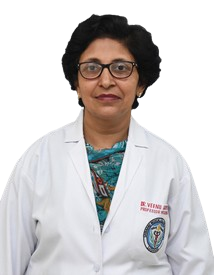
DR. VEENU GUPTA
Professor & Head
About Doctor
Dr Veenu Gupta is Professor & Head of Department of Microbiology at DMC&H. She did her M.BBS (1989), DGO 1993 from Govt. Medical College, Amritsar and MD Microbiology (1998) from Pt. BDSPGIMS Rohtak. Having 28 years of teaching experience and supervised 50 postgraduate students. She attended more than 145 National /International conferences,/CME / workshops and chaired sessions, delivered 45 guest lectures and presented papers in 38.
Dr Veenu is Life member of IAMM, Gastrointestinal infection s... Read More







